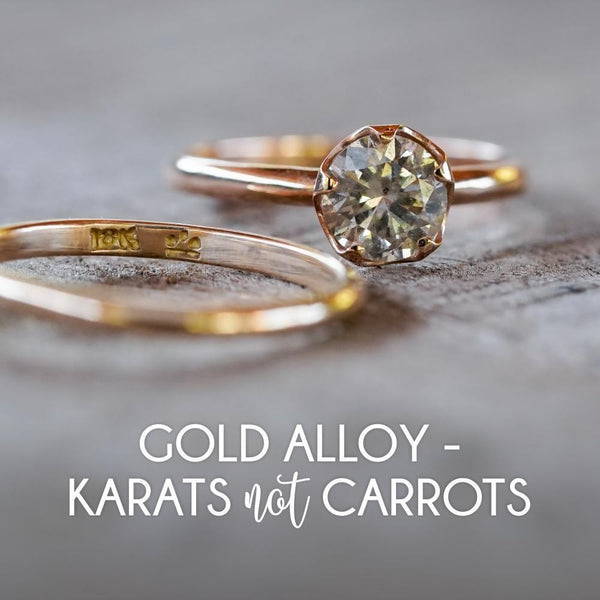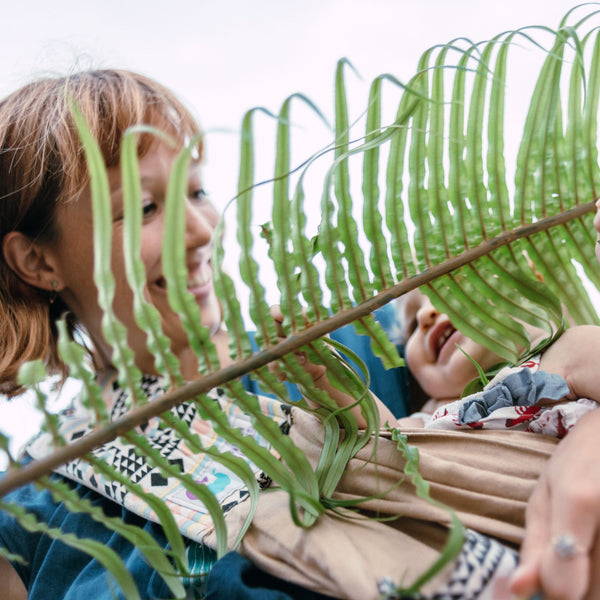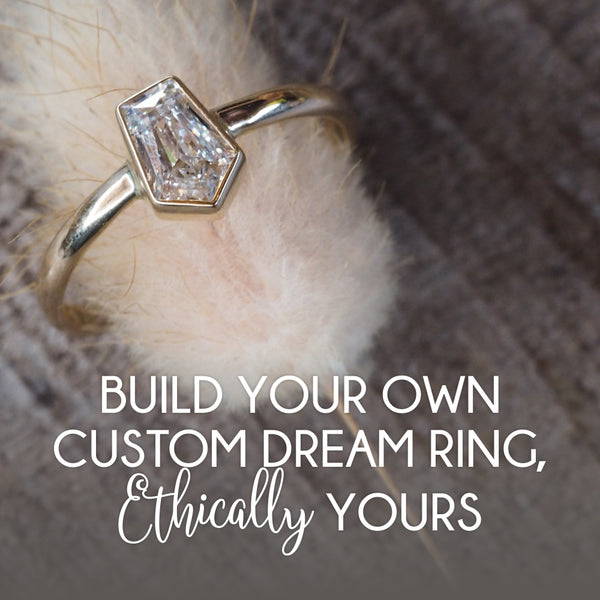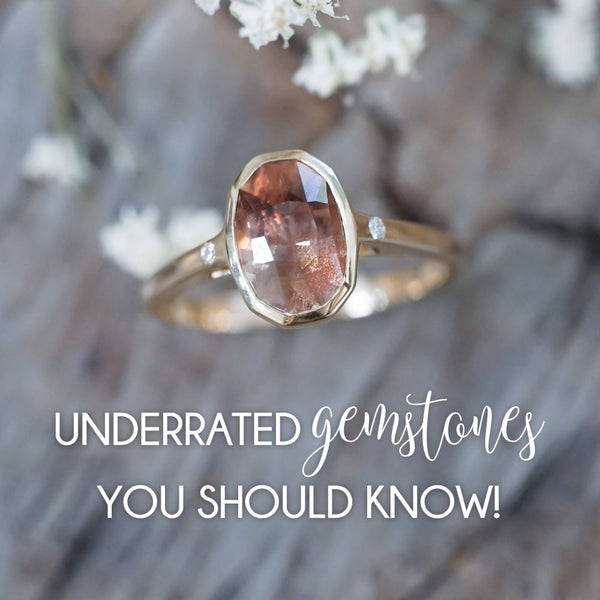Your Cart is Empty
For a symbol of everlasting love, engagement rings and wedding bands can be tainted with gruesome stories about blood diamonds and toxic pollution. Sure, you can have one of the most unique engagement rings in the world, but what’s its story? Great marketing teams can help the brand create a pretty portrayal of sustainability stories, but are they really true?
If you’re reading this blog post, chances are you do want ethical diamonds, not just cheap diamond rings. So how do you spot a clean engagement ring and wedding band when you’re swept with endless options?
These are the questions to ask your jeweler before settling on an engagement ring from them.
1.
ASK: Do you know where the gemstone or diamond was mined?
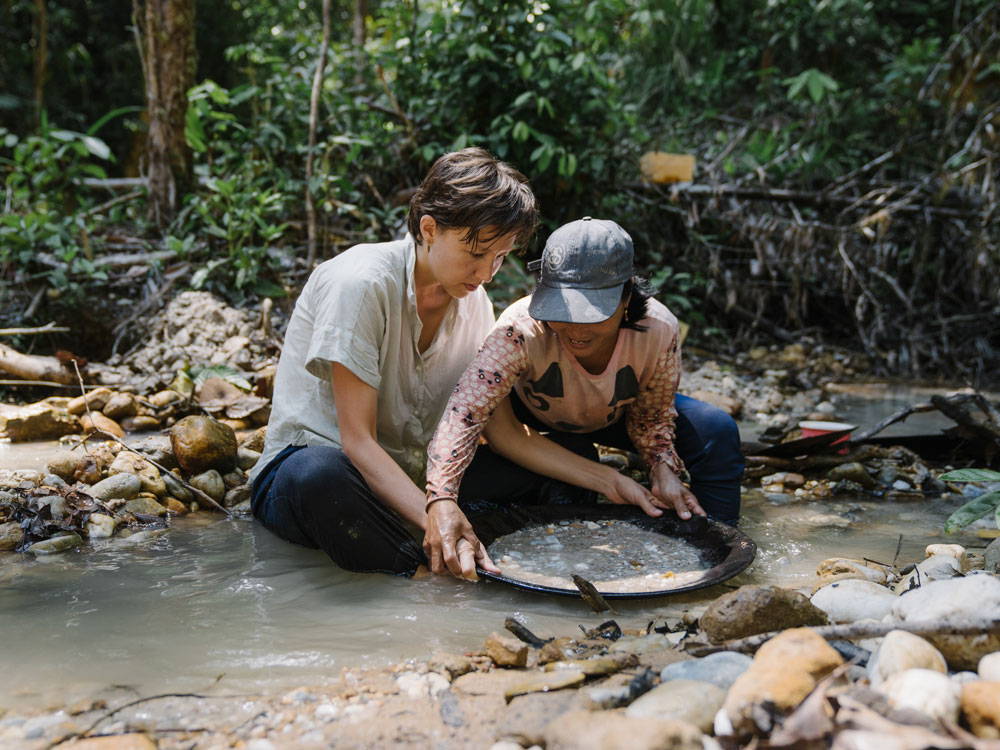
Ethical diamonds aren't impossible, but they’re hard to find. This is because direct sourcing is an important part to keeping the supply chain clean. Diamonds have Kimberley Certificate which helps to keep conflict diamond off the market (though it’s far from perfect). But for gemstones other than diamond, there’s no international body to trace gemstones throughout the supply chain. This makes transparency complicated and costly. That means few jewelers know the working conditions of the miners and cutters that touched their gems.
As a jeweler, if you don’t know where your stone is from, you can’t really make a difference in your supply chain. Ethical sourcing starts with transparent and traceable supply chains.
Not all jewelers have gemstone mining pits in their backyard, but some do. All sorts of gemstones are mined throughout the world. Look for jewelers who have close proximity to mining sites and purchase their gemstones locally, or jewelers who can show you behind the scenes photos and videos of them meeting the artisanal miners that they buy from.
Red flag:
Says its traceable, but doesn’t state where the gemstone was mined
Overstating the benefits of lab grown diamonds without considering indirect impact
Relies solely on Kimberley Certificate
Can’t tell you where the gemstone or diamond was mined
Sources from questionable origin, such as Myanmar, Colombia, Russia, Angola or Ivory Coast.
GREEN flag:
Has a system in place to trace gemstone origin
Gives you details which country, region or even the mine the gemstone was mined
Can tell you where or by whom the gemstone was cut
Assures you it’s a Fairtrade or certified origin gemstone or diamond through ethical suppliers, like Columbia Gemhouse, Nineteen48 Ltd or Misfit Diamonds.
What Gardens of the Sun has done so far:
We know where all our gemstones purchased since November 2018 are mined, at least to the country level
For most stones, we also know which country the gemstone was cut
For some stones, we know the exact mine and the cutter
What Gardens of the Sun is working towards:
Fully transparent and traceable supply chains for gemstones, for example Borneo diamonds and sapphires from rough to cutter
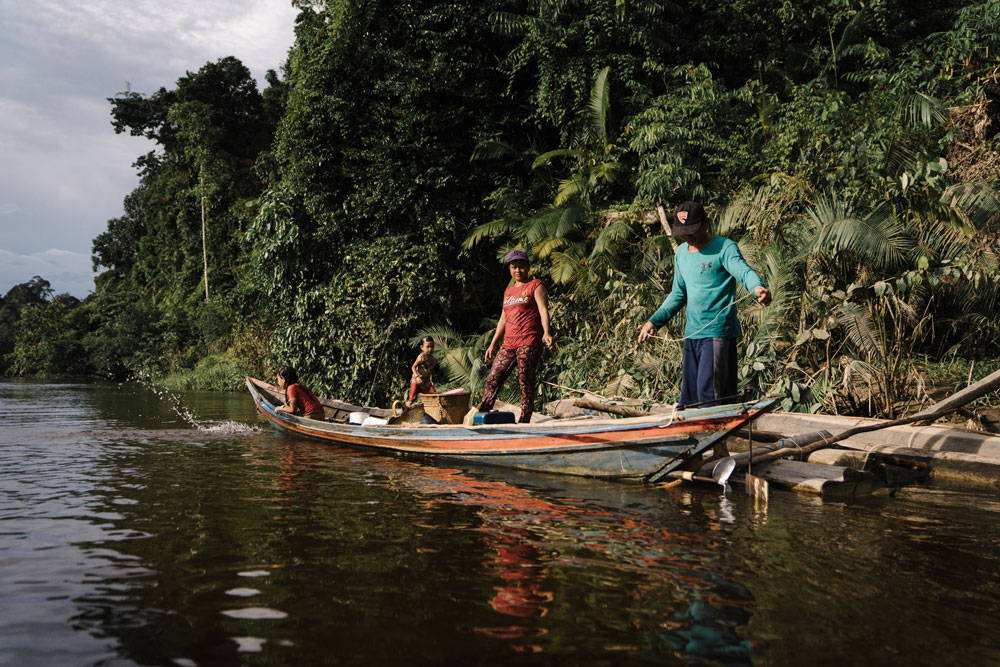
Borneo is a treasure island. And since we’re located rather close to Borneo (ok, my last visit took me on 2 domestic flights, two days driving over windy roads and dirt tracks by car and an hour by wooden boat), it only makes sense for us to source part of our gemstones collection ourselves. And that’s exactly what we did.
2.
ASK: Where does the metal in this ring come from?
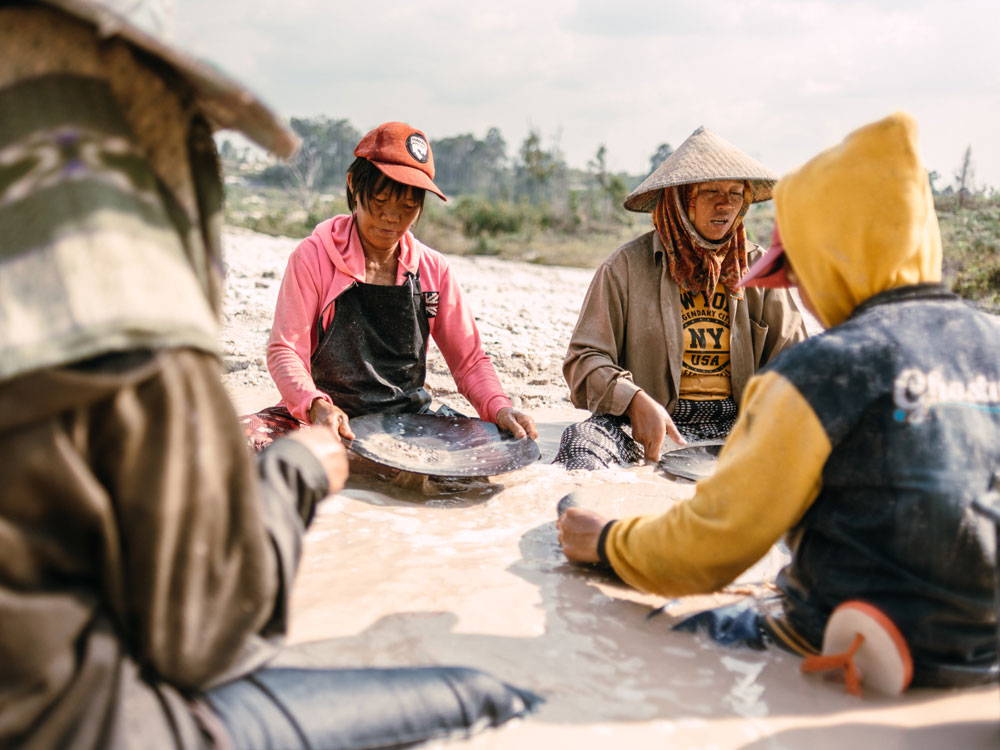
The more you know about where your metals come from, how they were mined or produced, the more you know whether that’s responsible or not. And from there, you can drive change. Make it better than it was.
Let’s take gold as an example. With Russia’s assets being frozen, Russia is turning to their gold reserves to subsidize their military aggression against Ukraine. They basically use gold to finance the war. Gold from unknown sources can have unintended consequences like this.
The use of recycled gold is growing as an ethical alternative. But how does recycled gold stop or improve new gold mining? Truth is - it doesn’t. Since gold is basically money, companies are still seeing a lot of value in digging gold for liquid assets. Recycling gold does little to stop the damage of gold mining, since the demand for gold remains.
Recycled gold is also problematic in its traceability. Since there’s no way of knowing where the gold comes from, recycled gold might have a history just as dirty as normal gold. This is because it easily circulates through various anonymous transactions, even used in money laundering. For instance, Dubai is notorious for buying dirty gold and revamp it into new jewelry pieces, then selling it under the ‘recycled gold’ label.
That’s why we skip recycled gold, and go for traceable gold, where we know the exact people and processes involved. We purchase directly from artisanal miners in Borneo.
Red flag:
Uses regular gold
Uses recycled gold and markets it as the main reason their jewelry is ethical
Green flag:
Acknowledges how recycled gold might be problematic
Uses Fairmined or Fairtrade gold
What we do now:
Gold is mined by indigenous women miners, who receive fair pay
Gold is mined by hand, using low impact methods
Gold is mined without deforestation
Gold is mined and processed without mercury or cyanide
What Gardens of the Sun is working towards:
We acknowledge the recycled silver we use now is only a temporary solution.
We’re working towards setting up a clean supply chain for artisanal silver, mined without deforestation, mercury or cyanide.
3.
ASK: Who makes the jewelry?
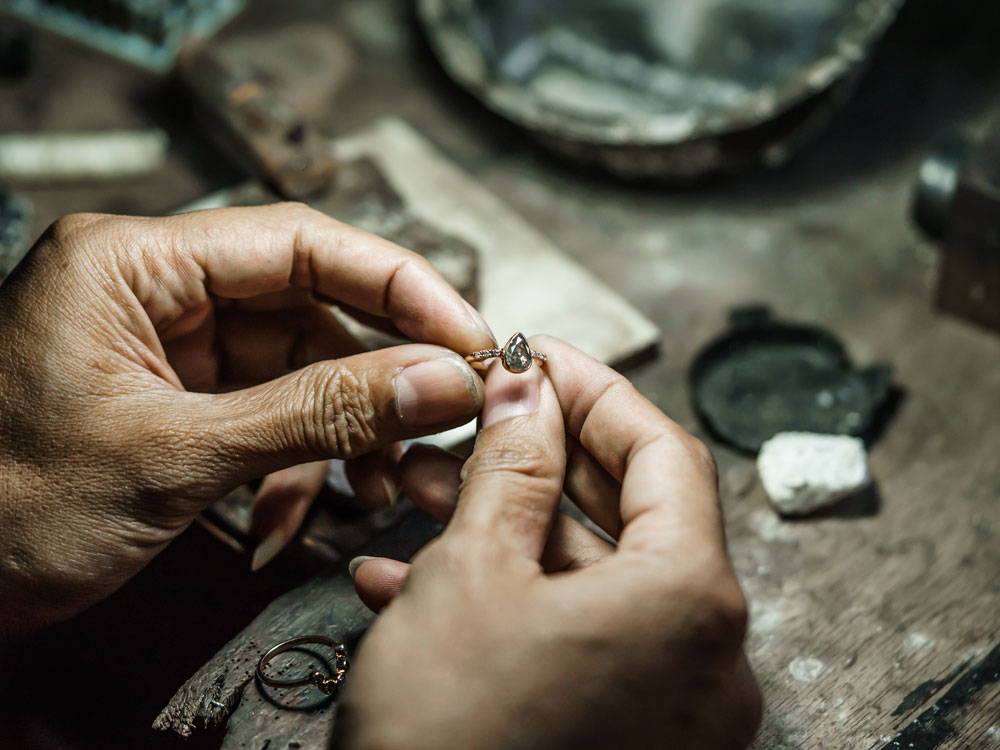
Jewelry, just like cars, can be made in an assembly line. This is true whether or not the retail brand is a fast fashion company. So don’t be fooled.
Consider businesses who put effort in building relationships with their partners, who’d tell you how their working relationship began, and who aren't trying to put a facade over their jewelry making process.
Red flag:
Can’t tell you who creates the jewelry
Mass produced
Green flag:
Jewelry is made in-house
Jewelry is made by hand
Knows exactly who made the jewelry, and can show you videos or photos of their working conditionsJewelry is made by hand
Pays third party metalsmiths fairly
What we do now:
We work with local and artisanal metalsmiths
All jewelry is crafted by hand, from scratch
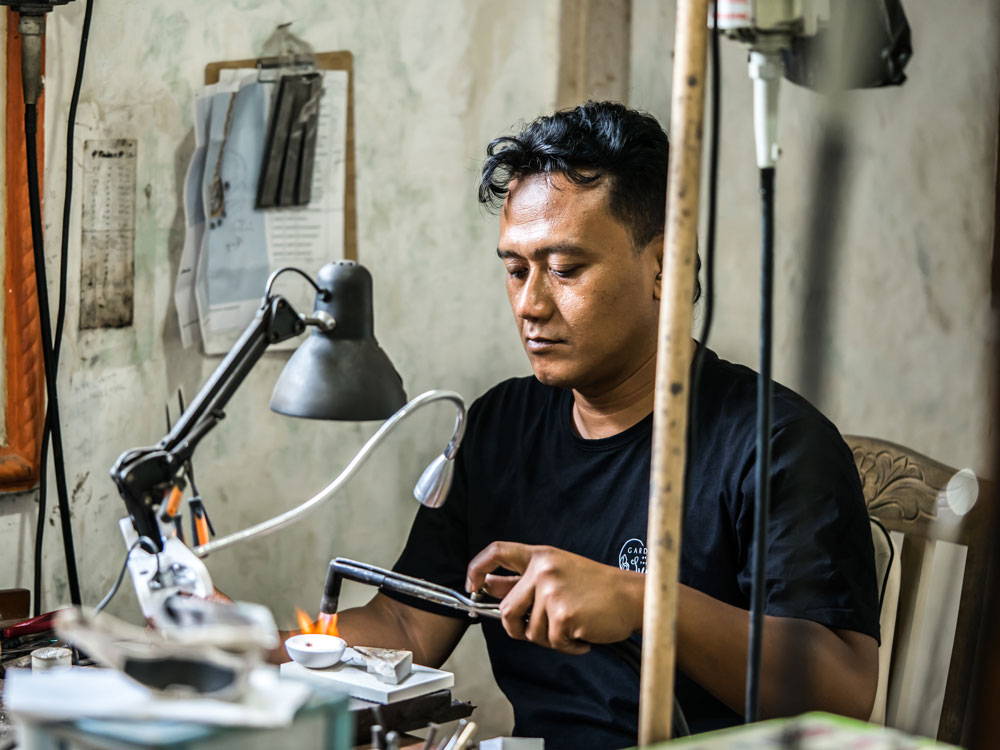
We’re kind of lucky that Indonesia is brimming with talents, and a young generation of metalsmiths isn’t hard to find. Yogyakarta is home to artisanal metalsmiths, and there’s even a whole district dedicated to local crafts made with silver. Without a doubt, this was my first - and last - stop on my search for metalsmiths to partner with. When I met Apri, I knew he'll be up for new challenges waiting on the horizon.
4.
ASK: Do you measure the impact of your jewelry?
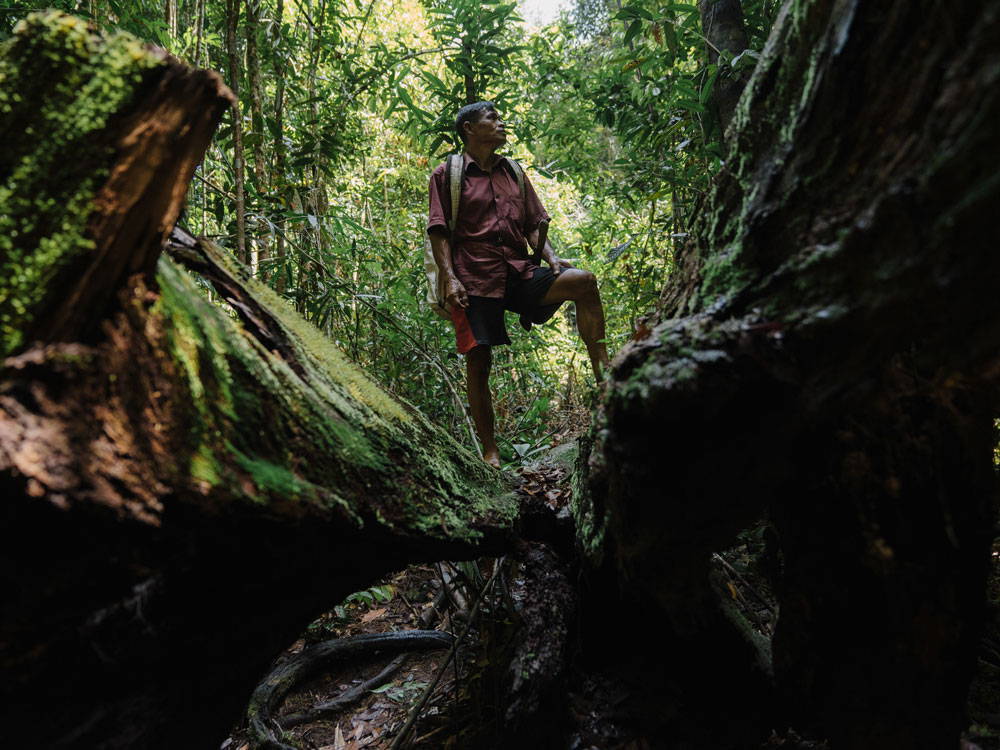
Being transparent and measuring impact isn’t easy to anyone, including the most ethical jewelers out there. Writing an annual impact report or sustainability report asks you to dive deep into your supply chains. Designers and retail brands are often on the ‘easier’ end of accepting finished goods. So whether or not they’re directly involved in the supply chain, it’s always a good thing to analyze the impact of their products throughout the supply chain.
So what kind of impact are we talking about here? Things like: pollution and use of toxic chemicals (like mercury), deforestation, fair pay, etc. The further down you go in the supply chain, the more damage you might see, and the more chances it’s being obscured. Jewelers who spend time unpacking this information is worth your time.
Red flag:
No information about their supply chain, or statements are without supporting data, names of factories, etc.
Relies on the Kimberley Process Certificate System, as if certificates are the only guarantee for the quality of their products
No impact or sustainability report
Green flag:
Healthy relationships with traders and others in their supply chain
Sets up a monitoring system to regularly evaluate their own sourcing ethics
Releases annual impact or sustainability report
Offsets carbon emissions
Acknowledges potential toxic pollution from mining
What we do now:
We have a Sustainability Team consisting of two amazing ladies
We calculate our carbon emissions, both direct (from our office and shipping) and indirect (production in our supply chain), and offset these
We have set up a responsible sourcing system for our materials
We are transparent about our supply chains
We avoid 10 to 14 kg of mercury pollution per year through more responsible sourcing
What Gardens of the Sun is working towards
Reducing our carbon emissions
We have a full time Sustainability Team who track and monitor our practices throughout the year. It’s important for us to understand in meticulous detail the consequences of our actions and practices. This data is calculated and compiled in our annual Impact Report.
It’s through this reporting system we’re able to trace back excessive practices and make changes for the better. We actively calculate our carbon footprint. Not just from our office and shipping, but also from production in our supply chain. On top of that we measure mercury pollution avoided through our gold partnership, trees planted and donations.
5.
ASK: How do you promote responsible practices in your supply chain?
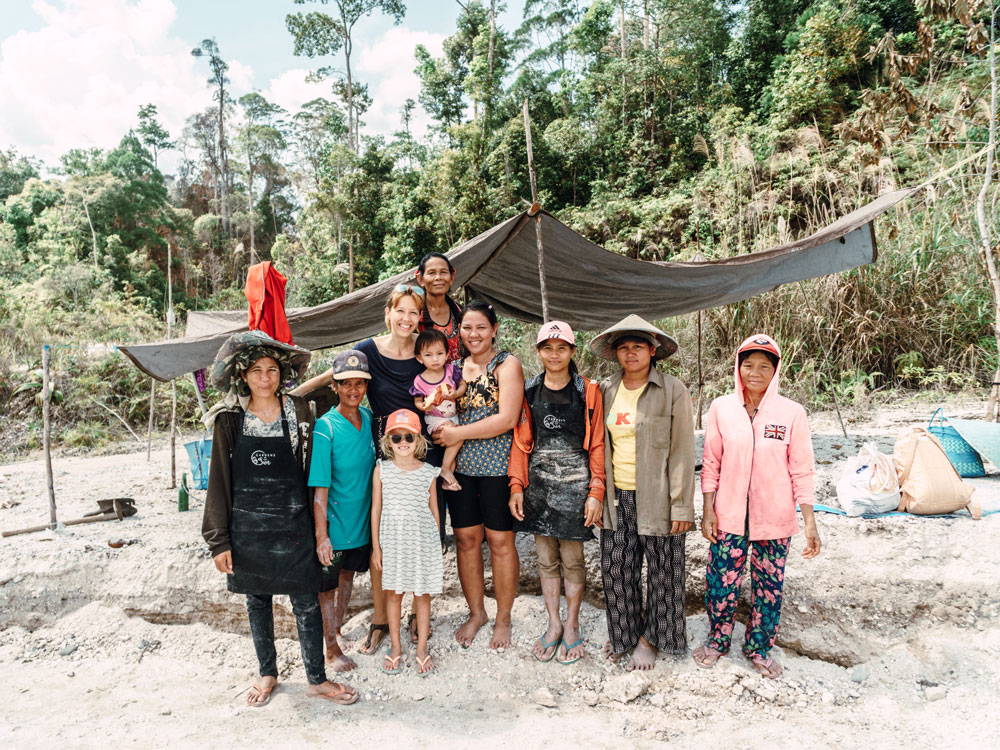
Mining involves some kind of disturbance. Imagine removing hundreds of tonnes of soil just to collect a few grams of gold. If it sounds bizarrely unnatural, it’s because it is. That’s why knowing the impact (see point above) is so critical in what we do, and putting extra effort to reverse the negative impact is part of maintaining healthy ecosystems.
Jewelers can promote responsible practices by incentivizing partners and groups who are doing their part in keeping the environment clean. For instance, paying premiums to miners who avoid mercury completely, giving back to encourage education in mining communities or rehabilitating former mining sites.
Red flag:
No involvement in diamond, gemstone or metal supply chains
Statements on their Ethics page without future plans or follow ups. Sustainability is considered a one-off rather than a constant work in progress.
Uses logos of industry initiatives that you only need to pay to become a member of - actual change or responsible practices aren’t a prerequisite
Green flag:
Creates educational programs in their supply chain to minimize negative impact
Willing to pay higher prices for responsible production
Giving back or working with NGOs relevant to their supply chain
Connected to people in their supply chain
B Corp certified
Active member in industry initiatives like Ethical Metalsmiths
What we do now:
We work directly with gold and sapphire miners
Ask our gold miners to pledge going mercury-free
Working with partners like Planet GOLD and Women in Mining and Energy Indonesia
Speaking at conferences to encourage other jewelers to be more ethical
Applied for B Corp certification
What Gardens of the Sun is working towards
Becoming B Corp certified
Launching a course or toolkit on Ethical Jewelry for fellow jewelers who don’t have an in-house sustainability team or expertise
Offering our ethical gold to other jewelers in Indonesia
Working directly with miners means we can control their practice as much as possible. When it comes to gold, we’re strict in implementing purification practices which don't involve mercury. Mercury is a cheap substance often traded illegally, which is why it can be a constant challenge to fight against its use. Lucky for us - we’ve avoided the release of an estimated 25.04 kg to 37.56 kg of mercury into the world. We also only work with miners with legal entities who pan by hand (not machines!) in alluvial rivers. We can say that visiting mining sites makes a big difference.
6.
ASK: Do you have a give-back program?
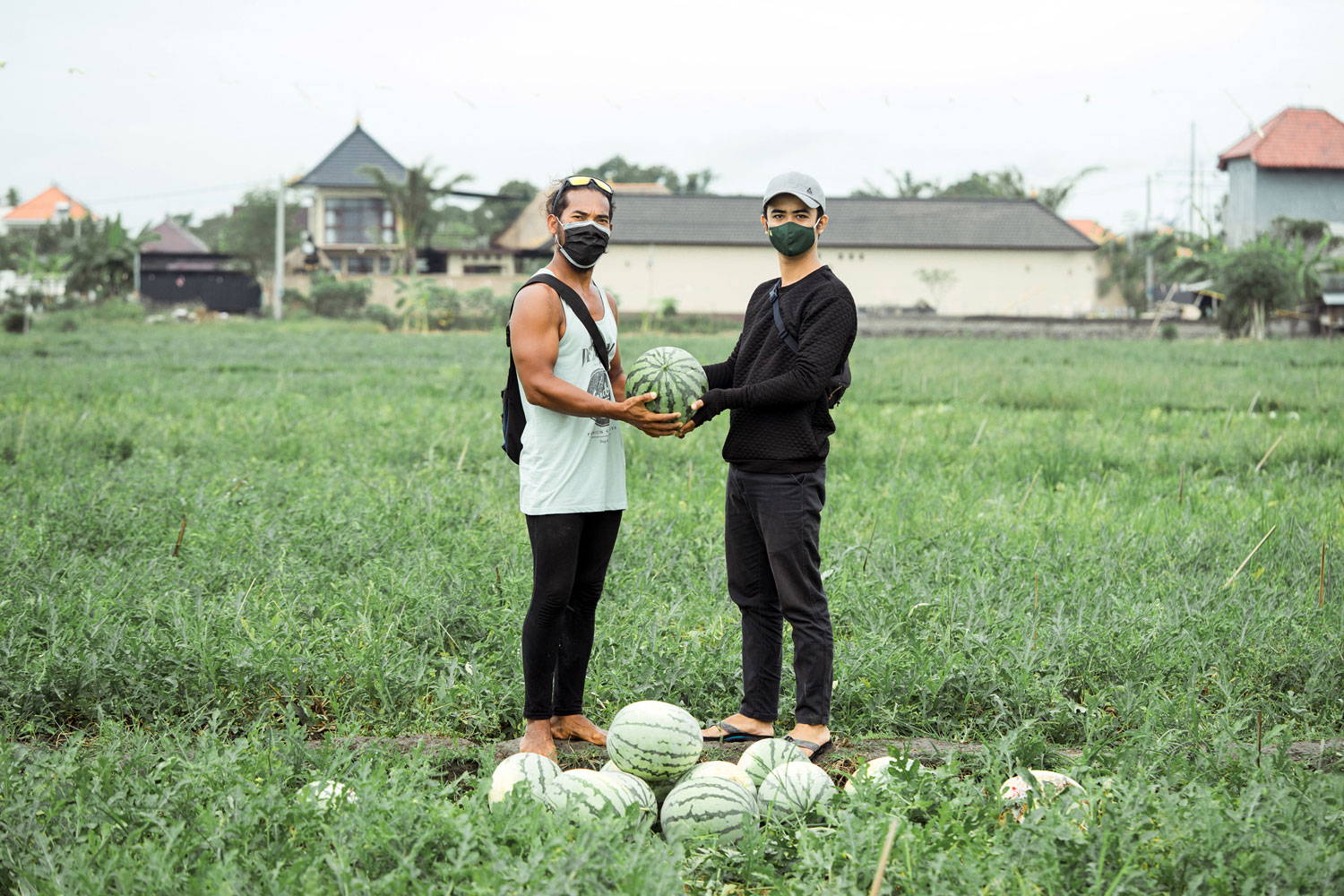
Giving back has never been this easy with so many organizations enabling you to donate with a few clicks. Seriously. That being said - look at how companies distribute their donation money. What are the causes they support? How much do they actually donate? Are they actually related to the jewelry they sell, or do they support political or religious affiliations?
Red flag:
Doesn’t have a give-back program
Doesn’t state how much they’re giving back (a percentage can be as small as a dollar per year)
Doesn’t state to whom they’re giving back
Donations are made to causes unrelated to their supply chain (errr.. What’s hiding there, right?)
Green flag:
Donation are made regularly, not only once-in-a-blue-moon
Clarity on how much they donate, either as percentage of their profit, percentage of their sales or a dollar figure
There’s a clear relationship to improving their own supply chain
What we do now:
Donation recipients and amounts are clearly stated in our annual Impact Report
Donations include tree planting in countries we operate in or source from, scholarships for miners’ children, education in mining communities, cleaning up toxic pollution, and causes we care about like women empowerment, ocean conservation and clean water in the country we work in
What Gardens of the Sun is working towards
Increasing the amount we donate
Setting up a mining rehabilitation and reclamation project
The gist of it:
transparent Supply ChainS
There’s a lot that goes into your ring. Like, a lot. From the meticulous task to set those diamond darlings on the band to the painstaking effort collecting gold flakes from alluvial rivers - rings of any kind are a labor of love made by multiple people.
When we’re talking ethical, we’re talking about a clean supply chain through and through. We’re talking about the gemstones and the metals, which both have their own supply chain and unique set of challenges. Materials matter. We’re talking about the miners, the cutters, the polishers, the smelters, the manufacturers, and the smiths. They never meet one another, yet work on the same object. We’re talking about responsible and sustainable working practices for workers, and that includes all the way down to their energy use and chemical waste.
A truly ethical engagement ring should have a positive impact on all people involved, and reduce the negative impact on the environment.
Are these tough questions to ask to your jeweler? For any ethical jeweler, these are tough questions to answer (and yes, that applies to us too). Go for an answer that shows transparency and a plan for the future. It’s not too much to ask.











